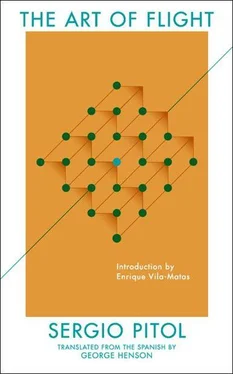When in “Peasants,” Nikolai Tchikildyeev, sick and despondent, arrives to his birthplace, he finds a dark, dirty, and miserable place that in no way corresponds to his nostalgia, where life in the village seemed radiant, beautiful, and tender. The initial silence is broken when his little daughter calls a cat and another girl, only eight years, the only human who receives them, exclaims:
“He can’t hear. He’s deaf. They gave him a beating.”
Everything has already been said! The blows that have burst the cat’s ear are sufficient to mark the space where Nikolai Tchikildyeev has arrived, and how bitter his days will be before death rescues him. The universe of cruelty is the same in a rustic peasant hut as in the opulent houses of the new bourgeoisie, like the one the protagonist inhabits in “A Woman’s Kingdom,” or the one belonging to the new rising class of merchants that appears in that extraordinary story, horror among horrors, titled “In the Ravine.” If a moral message can be inferred from the Chekhovian characters it is to resist succumbing to the mercilessness and vulgarity distilled by the domestic tyrants who populate the netherworlds where they are trapped. Confronting them is next to impossible. But we must resist, suffer, not yield, work, nor allow ourselves to be pulled under. If they achieve this, they will have won.
In a famous essay on Chekhov, written a few months before his death, Thomas Mann points out: “If references are to be made and praises bestowed, then I must certainly mention ‘A Tedious Tale,’ for it is my favorite among all Chekhov’s stories, an outstandingly fascinating work which for gentleness, sadness, and strangeness has no equal in the literary world.” 17This is a story that can be read from several perspectives, that remains open to interpretation by the reader, and that despite the warmth and pity that the author shows toward his creatures is but the agonizing portrait of a downfall. An old professor, the protagonist, discovers at the end of his days that no matter how noble his efforts to achieve something in life may have seemed, deep down his life has been meaningless; it differs in no way from that of Tolstoy’s insensitive Ivan Ilych. And as for the simplest question—“What is to be done?”—with which his young pupil, the only person in the world in whom he has taken any interest, confronts him, he cannot (or will not) but answer, “I don’t know, Katya. Upon my honor, I don’t know!”
As Chekhov’s health failed and the end was looming, his social ideas began to radicalize. He signed documents and protests, expressed solidarity with persecuted students; he distanced himself from Suvorin, his editor, his Maecenas, and until then his confidant and closest friend. In a particularly severe letter ending their relationship, he writes: “Indifference is a paralysis of the soul, a premature death.”
From a young age he was an admirer of Comte, a committed positivist. He once wrote, referring to the Gospel teachings of Tolstoy, that the peasant is turned into a compendium of all virtues: “Tolstoy’s morality no longer moves me. I don’t find it sympathetic deep inside my heart. Peasant blood runs in my veins. Don’t talk to me about the virtue of muzhiks ! I have believed in progress since I was very young. Objective reflections and my sense of justice tell me that in electricity and in steam there is more love for man than in chastity, fasting, and denial of the flesh.”
However, his faith in reason, science, and progress did not stop — because his writing was a pure exercise in freedom — some of his stories from adopting an almost evangelical tone. In one of his last short stories, “In the Ravine,” evil and usury are assimilated into a lie, and the only nobility is connected to suffering, the rhythms of nature, the earth, manual labor, with religiosity as intense as that of the late Tolstoy that he disliked so much. The only difference is that in Chekhov, the preacher disappears and only the writing remains. In a letter he writes: “Pharisaism, stupidity and despotism reign not in merchants’ houses and prisons alone. I see them in science, in literature, in the younger generation. […] That is why I have no preference either for gendarmes, or for butchers, or for scientists, or for writers, or for the younger generation. I regard trade-marks and labels as a superstition. My holy of holies is the human body, health, intelligence, talent, inspiration, love, and the most absolute freedom — freedom from violence and lying, whatever forms they may take. This is the programme I would follow if I were a great artist.” 18In his narratives and plays, these clear concepts would be transformed into a storm of details, would fragment, become dust, ashes, unfinished sketches, apathy, vague intonations. Paradoxically, this apparent insignificance would infuse his work with meaning and value. Perhaps that is what allows us to read him as a contemporary.
Xalapa, August 1993

16 Translated by Ronald Hingley
17 From “The Stature of Anton Chekhov” by Thomas Mann.
18 Translated by Constance Garnett
In the opening scene of The Good Soldier Švejk , the author, Jaroslav Hašek, places his protagonist at the very center of history: of Bohemia, his country, of the Austro-Hungarian Empire, of Europe, and of the world. In Sarajevo, Švejk is told that the heir to the imperial throne has just been assassinated. In the subsequent episodes of Hašek’s antiheroic tale, history will gradually lose its gifts and privileges, it will fade into a distorted backdrop against which a series of disproportionate and grotesque actions unfolds, whose protagonists are the poor soldier who gives the title its name, his friends and tavern mates, and his comrades in arms, all of whom lack any aspiration to grandeur, prestige, or glory. And, too, as the story progresses, a more abstract plot takes shape: the absurdity that governs and weaves the infinite network of relationships created by power within society and manipulated from above, and, ultimately, the neglect of an insignificant man, who in novels is but an infinitesimal part of a crowd, an easily interchangeable subordinate, committed, almost always, to being unaware of his neglect. The Good Soldier Švejk illustrates how this candid and irreducibly anarchic being, the protagonist, suddenly sees himself trapped by a seemingly perfect machine, and describes further the tools of wit that a homunculus is capable of employing to avoid being destroyed by mechanisms that he will never succeed in or be interested in understanding.
This character, always surprised but never intimidated, who ambles through a labyrinth of bridges and corridors, courts and galleries, until arriving at the front lines, navigates various court proceedings as enigmatic as those brought against Mr. K., his neighbor in Prague. Neglect and lack of pretexts, rather than reduce this Bohemian Sancho, have given him a freedom that the sedentary man would be unable to conceive of. Trapped in a seemingly impregnable and treacherous prison and administrative world, Švejk will have no choice but to topple it or cause it to explode. Because the Švejks of the world, men with doltish faces, are the perfect gravediggers of any empire. Dogged and guileless, they are destined to be implacable moles, cheerful and voracious termites, and time bombs ready to demolish any system considered to be monolithic, rigorous, and univocal. They have as their golem another of the illustrious characters of Prague: the vitality of the imprecise and the unfinished. They are unpleasant, they are vulgar, and above all, they are indestructible. Like cockroaches, they will manage to survive any disaster.
Читать дальше













